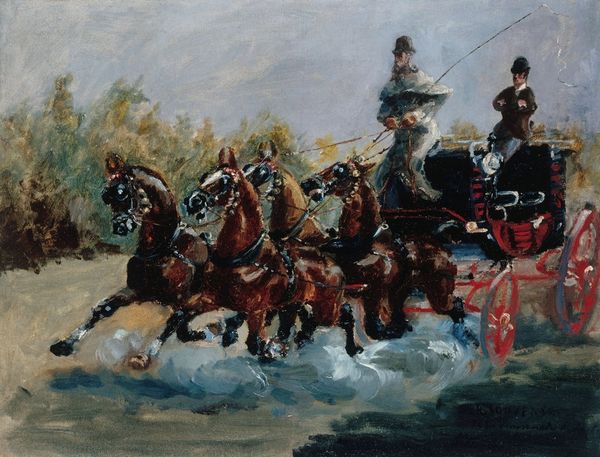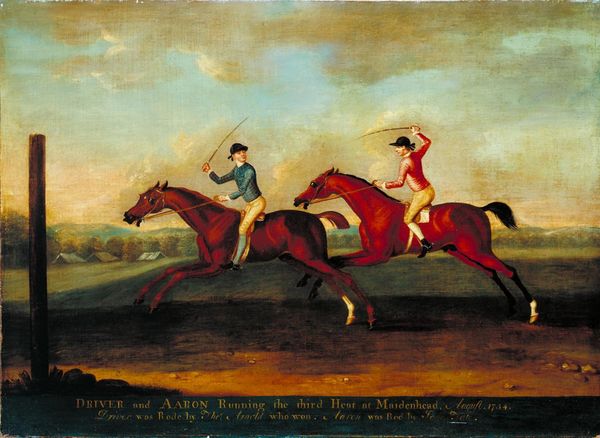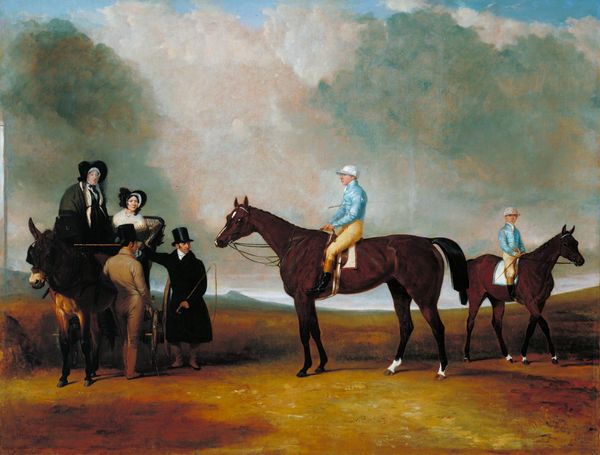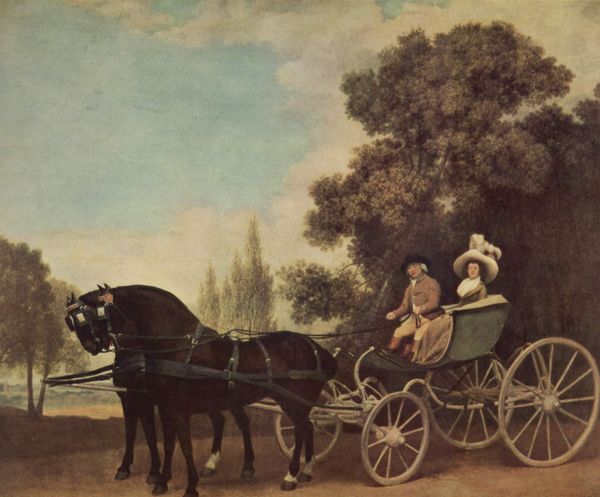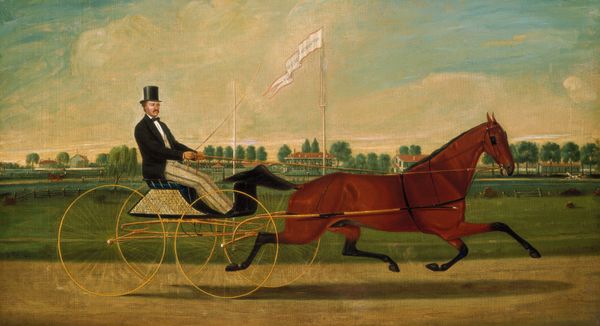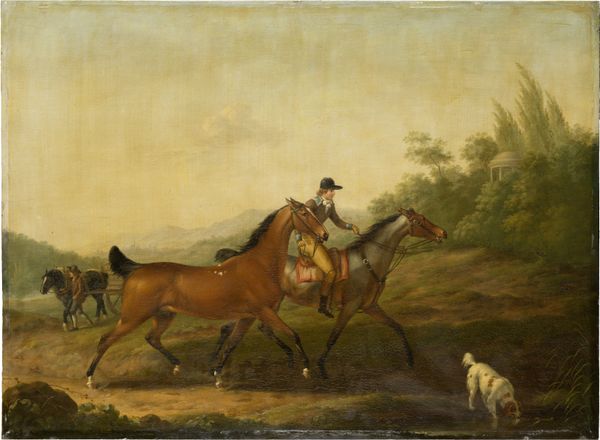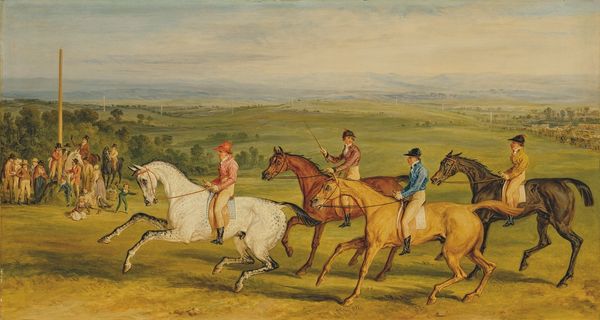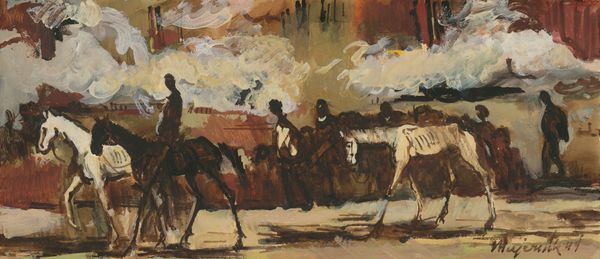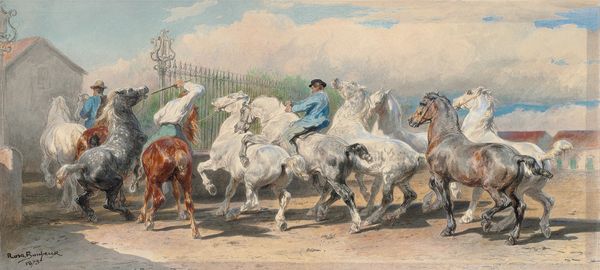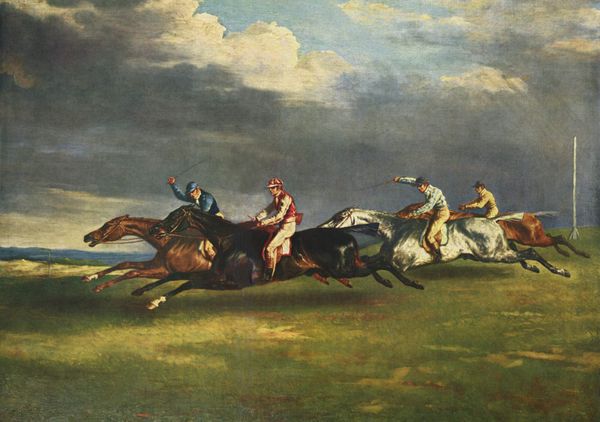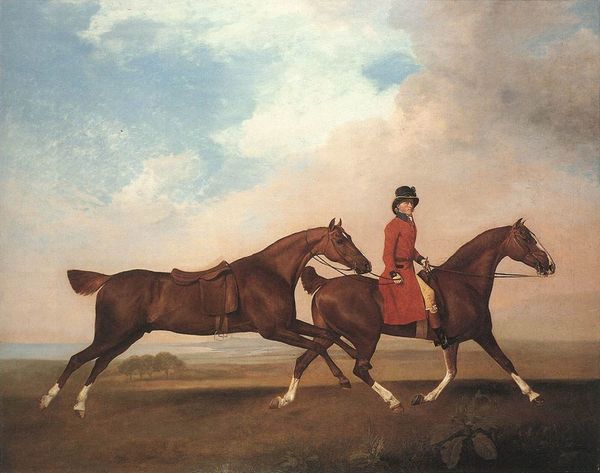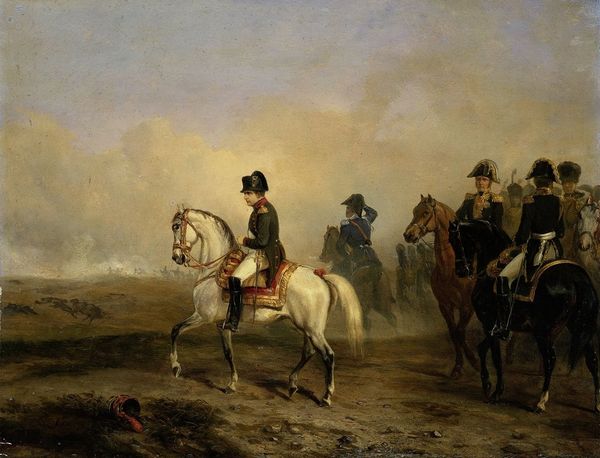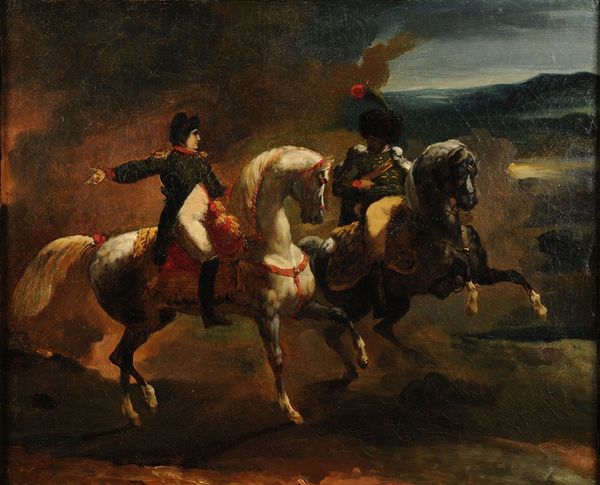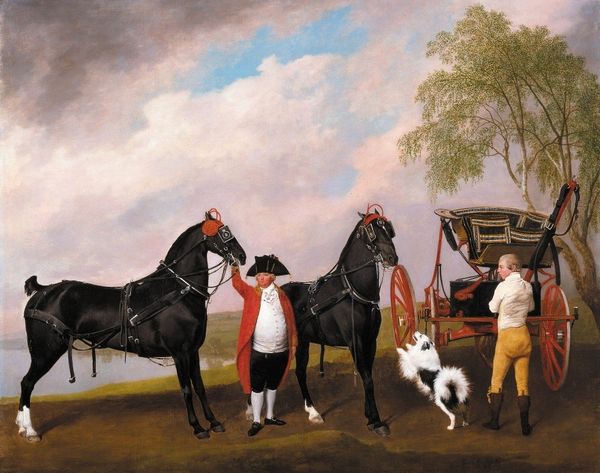
Dimensions: support: 1480 x 2445 mm
Copyright: © The estate of Sir Alfred Munnings | CC-BY-NC-ND 4.0 DEED, Photo: Tate
Editor: This is Sir Alfred Munnings’ "Their Majesties’ Return from Ascot," and the scale of the canvas is impressive. The composition is dominated by the horizontal pull of the horses. How would you interpret Munnings' artistic choices? Curator: Munnings masterfully employs a limited palette, focusing on variations of creams and browns which creates an almost sepia-toned impression. Notice how the brushstrokes are visible, especially in the sky, creating texture and movement. Editor: The lack of sharp details makes it feel almost dreamlike, doesn't it? Curator: Precisely. The lack of precise detail softens the focus, emphasizing the essence of the scene over a literal depiction. Consider also the formal contrast between the dynamic horses and the static carriage. Editor: It’s like he’s capturing a fleeting moment, a memory of royalty. I never noticed the contrast between the horses and carriage! Curator: Indeed. By focusing on the interplay of form and color, we can appreciate Munnings' skill in conveying a sense of motion and atmosphere.
Comments
tate 10 months ago
⋮
http://www.tate.org.uk/art/artworks/munnings-their-majesties-return-from-ascot-n04956
Join the conversation
Join millions of artists and users on Artera today and experience the ultimate creative platform.
tate 10 months ago
⋮
One of the leading traditional painters of his generation, Munnings was best known for his horse paintings. This depicts George V and Queen Mary, with the future kings Edward VIII and George VI, returning to Windsor Castle after attending Ascot races. Munnings became a Royal Academician in 1925, and recalled that he wished to ‘make an ambitious effort’: this ‘ten-footer’, as he called it, was the result. Munnings consciously invited comparison with earlier British artists, not least with Constable’s ‘six-footers’. This picture was painted partly out of doors, with the horses and the carriage done from life. Gallery label, September 2016
